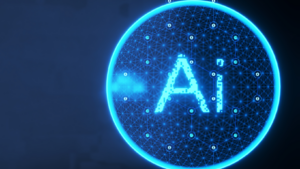In an era where artificial intelligence is rapidly transforming industries, the importance of ethical considerations can’t be overstated. AI ethics certification is emerging as a crucial tool for ensuring that AI systems are developed and deployed responsibly. This certification aims to establish a framework that guides AI practitioners in adhering to ethical principles, fostering trust among users and stakeholders.
As AI technologies become more integrated into daily life, concerns about privacy, bias, and accountability grow. AI ethics certification addresses these issues by providing guidelines and standards that help organizations navigate the complex ethical landscape. By implementing these certifications, companies can demonstrate their commitment to ethical AI practices, thus enhancing their reputation and competitive edge.
With the increasing demand for transparency and fairness in AI, the role of ethics certification becomes even more significant. It not only helps mitigate risks associated with AI deployment but also promotes innovation by encouraging ethical design and implementation.
AI Ethics Certification

AI ethics certification provides a structured approach to implementing ethical practices in artificial intelligence. Organizations offering certification often establish criteria based on global ethical standards, ensuring technologies align with principles like fairness and transparency. The certification process examines AI systems for potential biases and ethical dilemmas, helping developers create more equitable solutions.
Certified AI professionals gain the skills to navigate ethical challenges. These skills include understanding data privacy regulations, managing algorithmic biases, and ensuring accountability in AI deployment. Possessing such credentials signals to employers and stakeholders that an individual is equipped to handle complex ethical concerns in AI implementation.
Importance of AI Ethics Certification
AI ethics certification establishes a crucial framework for responsible development and deployment of AI technologies. It plays an essential role in ensuring that AI systems align with ethical principles.
Ethical Considerations in AI Development
In AI development, it’s vital to address human-centered ethics. AI ethics certification emphasizes fairness, transparency, and accountability, guiding developers to create systems with minimal bias and potential harm. Certification processes involve rigorous evaluations based on global ethical standards. These standards ensure AI technologies operate within acceptable ethical boundaries, addressing concerns like data privacy and nondiscrimination.
Building Trust in AI Systems
Trust forms the foundation of successful AI integration. Certification helps organizations demonstrate their commitment to ethical AI, enhancing user confidence. By obtaining AI ethics certification, companies signal their dedication to ethical practices. This assurance reassures stakeholders, reducing skepticism and promoting customer loyalty. Trusted AI systems encourage broader adoption, enabling innovation while addressing societal concerns responsibly.
Key Components of AI Ethics Certification
AI ethics certification involves critical elements that guide ethical AI deployment. These components ensure systems align with fair, transparent, and accountable practices.
Ethical Guidelines and Standards

Ethical guidelines form the foundation of AI ethics certification. These guidelines help developers align their AI systems with international standards like the IEEE Global Initiative on Ethics of Autonomous and Intelligent Systems. They provide directives on fairness, detail requirements for transparency, and outline privacy protection measures. By adhering to these standards, organizations maintain a uniform approach to ethical AI practices. Certified professionals must understand these guidelines thoroughly to ensure compliance.
Verification and Accountability Measures
Verification measures assess the adherence to ethical standards. These measures include audits and evaluations to ensure systems operate ethically. Accountability mechanisms identify potential ethical breaches, holding developers responsible for AI outcomes. Regular reviews and incident reports bolster this accountability, maintaining trust. Through these processes, organizations demonstrate a commitment to responsible AI practices, reassuring stakeholders of their dedication to ethical standards.
Leading Organizations Offering AI Ethics Certification
AI ethics certification is gaining prominence as various organizations strive to establish comprehensive programs that address ethical challenges in artificial intelligence.
Industry Leaders and Their Approaches

Prominent industry leaders offer AI ethics certification by incorporating global ethical principles into their programs.
- IEEE Standards Association: Offers certifications based on the IEEE Global Initiative on Ethics of Autonomous and Intelligent Systems, emphasizing principles like transparency and accountability. Their programs provide a detailed framework that guides organizations in aligning AI systems with ethical standards.
- AI Ethics Lab: Provides tailored solutions that address specific ethical concerns within organizations. Their certification programs focus on creating practical guidelines to mitigate risks and integrate ethics into the AI development process.

